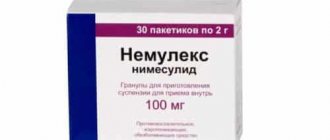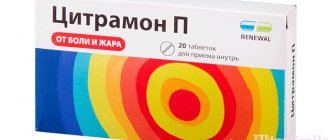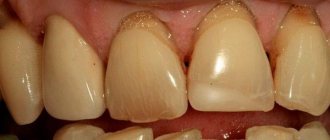Composition of the drug
Tablets called "Ibuprofen" contain the main substance called the same term. Each capsule contains 200 mg of this component. Additional substances in the product include: sucrose, gelatin, potato starch.
Ibuprofen for toothache is allowed to be used in extreme cases, for example, if it is not possible to urgently see a doctor. It is important to follow all dosages and rules of use of the drug specified in the instructions. The tablets are for oral administration only.
After treatment, be sure to contact a dentist, since only he can accurately determine the problem and find an effective way to solve it. When visiting a doctor, the patient must inform them that they have taken the drug so that the dentist can more accurately determine the advanced stage of the disease.
According to patient reviews, the drug helps 20 minutes after oral administration. The pain subsides on average for 6 hours. However, we must remember that each person’s body is individual, so the duration of the therapeutic effect of the drug will differ for each patient.
If no therapeutic effect was noted after taking Ibuprofen, then you should not take the capsules again. In this case, it is better to urgently visit a doctor or call an ambulance.
Ibuprofen during pregnancy and lactation
Ibuprofen is the drug of choice for pain and fever during pregnancy, since during this period of time it is safer for the woman’s body than most other analgesics and antipyretics.
In the first 2 trimesters of pregnancy, it does not have a negative effect on the development of the fetus, does not provoke bleeding (unlike Aspirin ) and does not create a threat of miscarriage.
In the last trimester of pregnancy, taking Ibuprofen is contraindicated.
Firstly, the drug inhibits the contraction of the uterine muscles. Secondly, its use can cause closure of the ductus botellus and the development of pulmonary hypertension in a child. Thirdly, the medicine tends to block the hormones responsible for the birth process.
Ibuprofen during breastfeeding does not affect the quality and secretion of milk, therefore it can be used to treat nursing women.
Action of the medication
Does Ibuprofen help with toothache? The drug can eliminate several unpleasant symptoms that accompany dental problems:
- pain;
- temperature increase;
- swelling and inflammation of the soft tissues of the mouth.
Pain is a signal from the brain that problems are occurring in the body. Discomfort in the oral cavity is a symptom that the tooth is undergoing destruction under the influence of pathogenic flora
If pain is observed constantly, this means that the nerve endings of the tooth or the soft tissue located next to it have been destroyed. Ibuprofen reduces symptoms of discomfort by blocking nerve impulses from the affected area to the brain.
You cannot rely only on the effect of painkillers. The person will not feel discomfort, but the destructive processes in the dental tissues will continue. This condition can lead to more dangerous complications and loss of the unit.
The main advantage of Ibuprofen is that it has a complex effect on the body. That is, a person does not need to take a handful of pills to eliminate fever, relieve swelling of soft tissues and relieve pain. A small amount of medication is enough to cope with the signs of dental diseases. Thanks to this property, the load on internal organs (kidneys, liver, pancreas) is reduced.
Will it help?
Of course, before taking painkillers for a toothache, you should assess the degree of pain and think about the potential consequences of taking medications. In fact, according to statistics, very few people think about these aspects as soon as they experience pain in the oral cavity.
The most important fact is that relieving toothache with tablets will only be a temporary solution. This approach will help alleviate the general condition, but only for a certain time.
It should also be noted that tooth pain is often accompanied by concomitant symptoms, which manifest themselves in inflammation of the gums, cheek area, increased body temperature and a feeling of general malaise. Many of the tablets help relieve secondary manifestations, but have no effect on the cause.
This is why in most cases a visit to the dentist will still be required. After all, the painkiller will simply reduce the level of pain, but not for long. Moreover, in many situations the ongoing disease will only gain momentum and the pain will increase. Therefore, there is no point in enduring without visiting a doctor for a long period with persistent toothache.
Methods of application
Ibuprofen is used when it is not possible to see a doctor immediately. It is advisable that after taking the drug, the dentist examines the patient a few days later. This will prevent complications. Uncontrolled use of painkillers can lead to serious consequences associated with disruption of the functioning of the digestive system and intoxication of the body.
The dosage of the drug for adults and children over 13 years of age is standard and is 600-800 mg per day or 1 tablet 3-4 times a day. If severe pain bothers you or there is an urgent need to relieve pain, then the dosage is increased to 1200 mg per day (2 capsules three times a day). After achieving the desired effect, the amount of the drug taken is reduced to 600-800 mg.
Children under 13 years of age are given the drug only with the permission of a doctor. Typically, children are also recommended to take 1 capsule 2-3 times a day. It is important that the child’s weight is more than 20 kg, and the interval between doses is at least 5-5.5 hours.
If Ibuprofen therapy is carried out for several days, then the first dose is taken in the morning on an empty stomach. Have breakfast after 15-20 minutes. The tablet should not remain in an empty stomach for a long time, so as not to provoke the development of ulcers or gastritis. For this reason, the drug is taken with plenty of water.
If the drug does not work, you should not take it again. It is also prohibited to take another medication with a similar effect to Ibuprofen. The described actions often cause an overdose. It is even more dangerous to mix painkillers with each other.
Many patients with toothache use Ibuprofen topically. They crush the tablet and place the powder into the carious cavity. In some cases, such methods help, but often the drug leads to even greater destruction of bone tissue and progression of the carious process.
For children
Ibuprofen is not usually prescribed to children for toothache. This is due to a large number of side effects of medications. Children are also more likely to experience intolerance to the propionic acid contained in the product.
Ibuprofen syrup for children
For children, it is preferable to purchase not tablets, but a product in the form of a syrup with a dosage of 100 mg per 5 ml. Thanks to this form of release, it will be easier to calculate the dosage needed by the child based on his age and weight. The syrup has a pleasant sweetish flavor and can be diluted with water, compote and other liquids.
For pregnant
During pregnancy, Ibuprofen is taken with caution, since at this time the load on the urinary system increases. They try to select the dosage in minimal quantities. Pregnant women are allowed to drink no more than 400 mg of Ibuprofen per day. For moderate pain, it is better to give preference to less dangerous painkillers - Papaverine, Nosh-pe. It is advisable that the tablets be consumed after meals to avoid causing heartburn and stomach pain.
Let's go through the list
This material is not an advertisement for any products, so we will list the most suitable solutions in tablets for toothache in alphabetical order:
- Analgin.
- Ibuklin.
- Ketanov.
- Ketorol.
- Moment.
- Nise.
- Nimesil.
- Nurofen (ibuprofen and drugs identical to this group).
- Sanaprox.
- Tempalgin.
Ketanov is considered one of the most suitable options when asking what you can drink for toothache. It has a sufficient speed of impact, that is, fast, and at the same time effective. In some cases, such tablets help relieve even severe pain. But you should remember about the frequency of administration and dosages.
Nurofen not only helps relieve pain, but also has an anti-inflammatory and antipyretic effect on the entire body. You should be aware that some of the modifications of these toothache tablets contain a potent substance in the form of codeine. We are talking about variations of Nurofen Plus and Nurofen Plus N. It will also enhance the analgesic effect. The classic version can be used to relieve toothache in both adults and children.
A simple option with classic toothache tablets in the form of Analgin is also popular in the fight against this disease. The main substance here is sodium metamizole, which, due to its acidic structure, has a negative effect on enamel. For this reason, if there is damage in the latter, the area of carious lesions may increase. But if the filling falls out or is chipped, it will be effective.
Contraindications and side effects
The medicine is taken after studying all contraindications to it. This will make it easier to minimize the risk of side effects, including:
Home remedy for toothache
- bronchospasms and shortness of breath;
- problems from the gastrointestinal tract: nausea, vomiting, diarrhea, pain in the upper abdomen;
- headache;
- deterioration of visual and auditory functions;
- allergic reactions from the skin (rashes on the body) and the respiratory system (swelling of the larynx, attacks of suffocation);
- exacerbation of cystitis and nephritis;
- increased sweating;
- internal bleeding (usually observed with long-term use of the drug).
If you notice any of the above symptoms, you should immediately stop taking Ibuprofen and consult your doctor.
You should refrain from using the product if you have one of the following pathologies:
- gastrointestinal disorders;
- inflammatory bowel diseases;
- problems with blood clotting.
Ibuprofen is prohibited for children under 6 years of age; pregnant women; persons with individual intolerance to acetylsalicylic acid; patients who have recently undergone surgery.
Ibuprofen therapy should be used with caution during breastfeeding, since the active component passes into breast milk in small quantities. However, in practice, doctors have identified negative reactions for the child when a nursing mother takes an anesthetic. Elderly people and people suffering from diabetes need to take the medicine carefully.
What to do if your tooth hurts: TOP 6 best painkillers for toothache
There are two groups of drugs that are best used to relieve toothache. These include: analgesics and NSAIDs (non-steroidal anti-inflammatory drugs).
Analgesics for toothache
These medications eliminate the source of pain by affecting the nerve endings and pain centers in the brain. However, analgesics, unlike NSAIDs, do not affect inflammatory processes and cannot eliminate inflammation of the pulp, periosteum, and gums.
Some drugs from this group, in addition to the analgesic effect, also have an antipyretic effect - they are called analgesics-antipyretics. Such medications can eliminate toothache and reduce the fever that accompanies it. Thus, analgesics-antipyretics help get rid of two unpleasant symptoms at once.
Paracetamol is considered the most popular and safe drug from this group.
Paracetamol
This medication has analgesic and antipyretic properties. It begins to act 30 minutes after administration, after the same time the maximum concentration of the active substance in the body is reached. Paracetamol can be used by children over 6 years of age (in tablet form, dosage 200 mg), adults, pregnant and lactating women.
The effect of the drug lasts 4 hours. This remedy can also be combined with other drugs to enhance their effectiveness. Paracetamol is quite safe, as it has a small list of side effects, and cases of their occurrence are recorded extremely rarely.
Contraindications for use:
- chronic alcoholism;
- serious liver disorders;
- hypersensitivity to paracetamol.
If you have a toothache and this causes your temperature to rise, then the safest thing to do is take a drug whose main active ingredient is paracetamol.
NSAIDs for toothache
Non-steroidal anti-inflammatory drugs suppress the production of prostaglandins (hormone-like substances that cause pain and inflammation in the body), resulting in reduced pain and inflammation. In addition, drugs from this group also have an antipyretic effect.
However, they cause a large list of side effects for the gastrointestinal tract and cardiovascular system. Therefore, they must be taken according to the instructions and prescription of the doctor. It is important to note that medical experts do not recommend taking non-steroidal anti-inflammatory drugs on an empty stomach, as this can lead to negative consequences.
There is a list of contraindications for which NSAIDs should not be taken:
- combined use with other drugs from the NSAID group;
- allergic reactions to the active and auxiliary substances of non-steroidal anti-inflammatory tablets for toothache, as well as powders, ointments and suspensions;
- severe renal, liver or heart failure;
- diseases of the gastrointestinal tract (ulcers, gastritis, Crohn's disease, ulcerative colitis) in the acute stage;
- previous heart surgeries and progressive diseases of the cardiovascular system;
- existing or recent internal bleeding;
- blood clotting disorders.
If you have a toothache and there are no contraindications listed above, then you can take an NSAID tablet.
The most effective painkillers for toothache from the group of non-steroidal anti-inflammatory drugs include: Nurofen, Nimesil, Ketanov, Dexalgin and Olfen.
Nurofen
Used to relieve mild to moderate toothache. The main active ingredient is ibuprofen, its maximum concentration in the blood plasma is reached after 45 minutes if taken on an empty stomach, or after 2 hours if taken on a full stomach.
After oral administration, ibuprofen is quickly absorbed and begins to relieve pain, relieve inflammation and reduce temperature. The half-life of the drug lasts 2 hours.
In addition to the standard contraindications for NSAIDs, ibuprofen should also not be used by women in the last trimester of pregnancy, as this can negatively affect the health of the baby.
Nurofen in tablet form for toothache can be taken by children over 6 years old if their body weight exceeds 20 kg.
To avoid negative reactions from the stomach and the entire gastrointestinal tract, it is recommended to take the drug after meals.
Ibuprofen tablets, which are film-coated, reduce the risk of side effects from the digestive system.
Nimesil
The main active ingredient of the drug is nimesulide. Nimesil is a light yellow powder that has a pronounced citrus smell.
When taken orally, nimesulide is quickly absorbed from the stomach and enters the bloodstream, and the maximum plasma concentration of 100 g of this active substance is achieved 2-3 hours after administration.
It is recommended to take Nimesil for toothache after meals. Nimesulide powder should be poured into a glass, pour 100 ml of water, stir and drink.
An additional contraindication to its use, in addition to the general contraindications for the NSAID group, is the combined use of nimesulide with analgesics and the presence of infectious fever.
It should not be taken by children under 12 years of age, pregnant or nursing mothers, or people with kidney or liver disease.
Ketanov
This drug is used against severe and moderate toothache. Its main active ingredient is ketorolac tromethamine. Ketanov is not addictive, and the strength of its analgesic effect is compared to morphine. This drug is much stronger and more effective than other members of the NSAID group.
Ketanov for toothache has an effect 60 minutes after a person takes the tablet, and the maximum effect of the drug appears after 2-3 hours.
The medication should be taken on a full stomach, because taking the painkiller on an empty stomach increases the risk of side effects. A few hours before and after taking Ketanov, it is recommended not to eat fatty foods, as it slows down the speed of its action.
It should be noted that the presence of urticaria, bronchial asthma, cerebrovascular bleeding and tonsillitis in a person is considered contraindications to the use of the drug.
Children are allowed to drink Ketanov for severe toothache only from the age of 16, and it is not prescribed to lactating women, pregnant women and people with chronic heart, kidney and liver diseases.
Dexalgin
The main component is dexketoprofen. Dexalgin relieves toothache 30 minutes after oral administration. The duration of the analgesic effect is 4-6 hours, and the duration of removal of the medication from the body is 1-3 hours.
Dexalgin is contraindicated for use in patients with bronchial asthma and hemorrhagic diathesis. In addition, it is strictly prohibited for children, women during lactation, pregnant women to drink it and should be taken with caution by people over 65 years of age. And patients who have problems with the kidneys and liver need to reduce its minimum dosage.
Dexalgin must be prescribed by a doctor, since this medicine, like all NSAID drugs, is available by prescription.
Olfen
The main active ingredient is diclofenac. It inhibits the biosynthesis of prostaglandins, thereby suppressing toothache and inflammation. It can also reduce elevated body temperature.
Contraindications to the use of Olfen are:
- cardiac ischemia;
- angina pectoris or previous myocardial infarction;
- peripheral artery disease;
- cerebrovascular pathologies.
The effect begins to appear 30 minutes after administration, and the maximum concentration in the blood occurs after 120 minutes.
Olfen is available by prescription after being prescribed by a doctor.
Reviews about the treatment
Irina, 25 years old. My mother used ibuprofen to eliminate the symptoms of a cold, but I did not imagine that the medication would also be suitable for suppressing toothaches. Once, after dental treatment, my gums hurt badly, the only medication I took was Ibuprofen. I thought that if it effectively eliminates the signs of inflammation during a cold, then it could also help with toothache. The discomfort passed very quickly - within 10 minutes. Now I always carry the product with me in my purse because it is inexpensive and saves me from many types of problems. Among the disadvantages of Ibuprofen, only its chemical composition can be noted.
Larisa 38, years old. I have always appreciated Ibuprofen as a powerful pain reliever. I decided to give it to my 12-year-old son after he had a toothache and a fever. The remedy did not help us, the temperature subsided quite a bit, and the intensity of the pain did not change. For this reason, I advise you to resort to more modern and effective drugs for the problem, for example, Naizu or Ketanov. Among the disadvantages of the tablets, I can note numerous contraindications. Before taking Ibuprofen, you should carefully read all the contraindications and possible side effects.
Alla, 41. A few months ago my enamel sensitivity worsened. My teeth hurt and ached a lot, especially when eating hot and cold food. At some point the pain became so intense that it was difficult for me to fall asleep. Ibuprofen tablets helped cope with unpleasant symptoms. I take painkillers about once a month (for exacerbation of enamel sensitivity, headaches) and do not notice any side effects.











